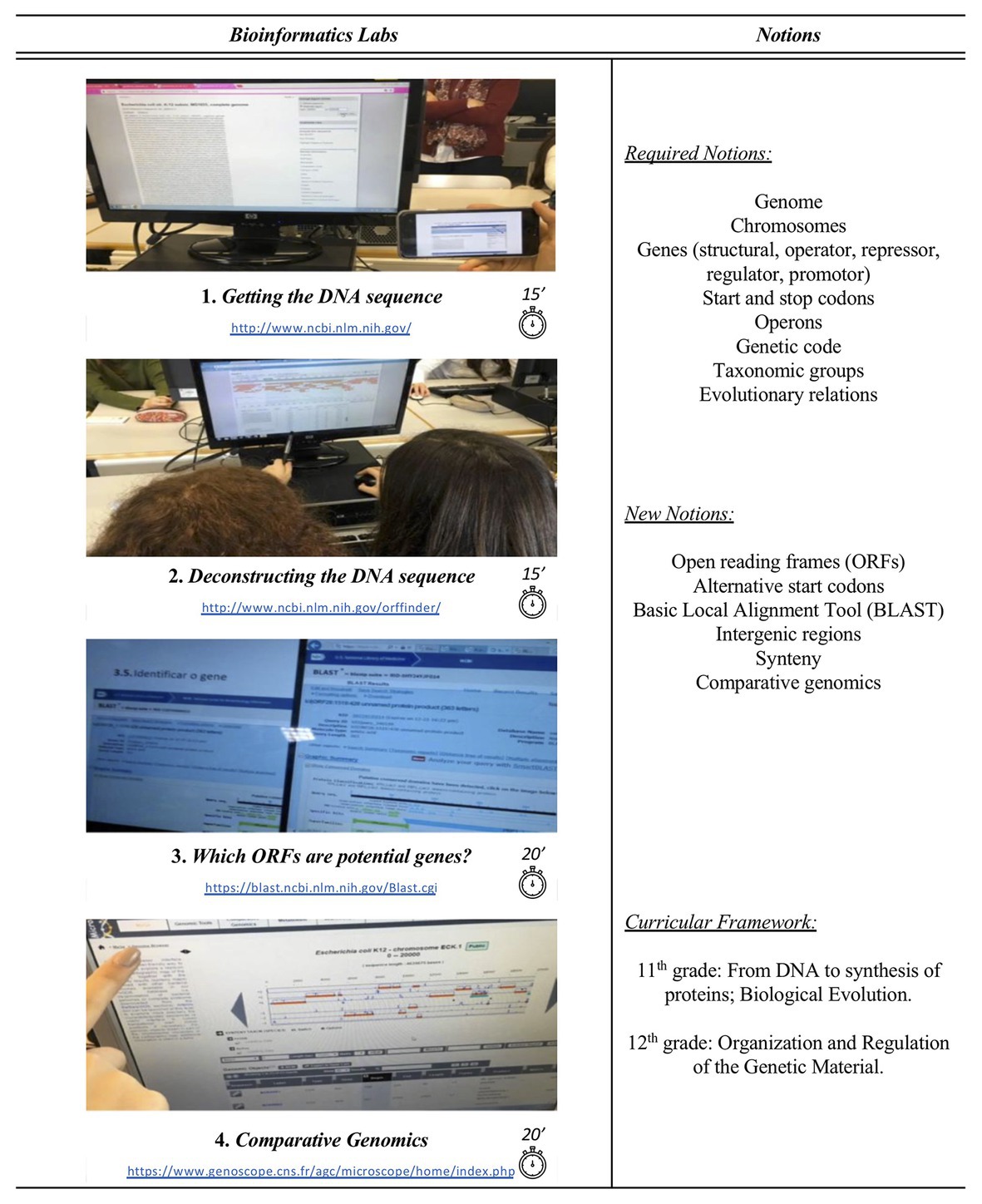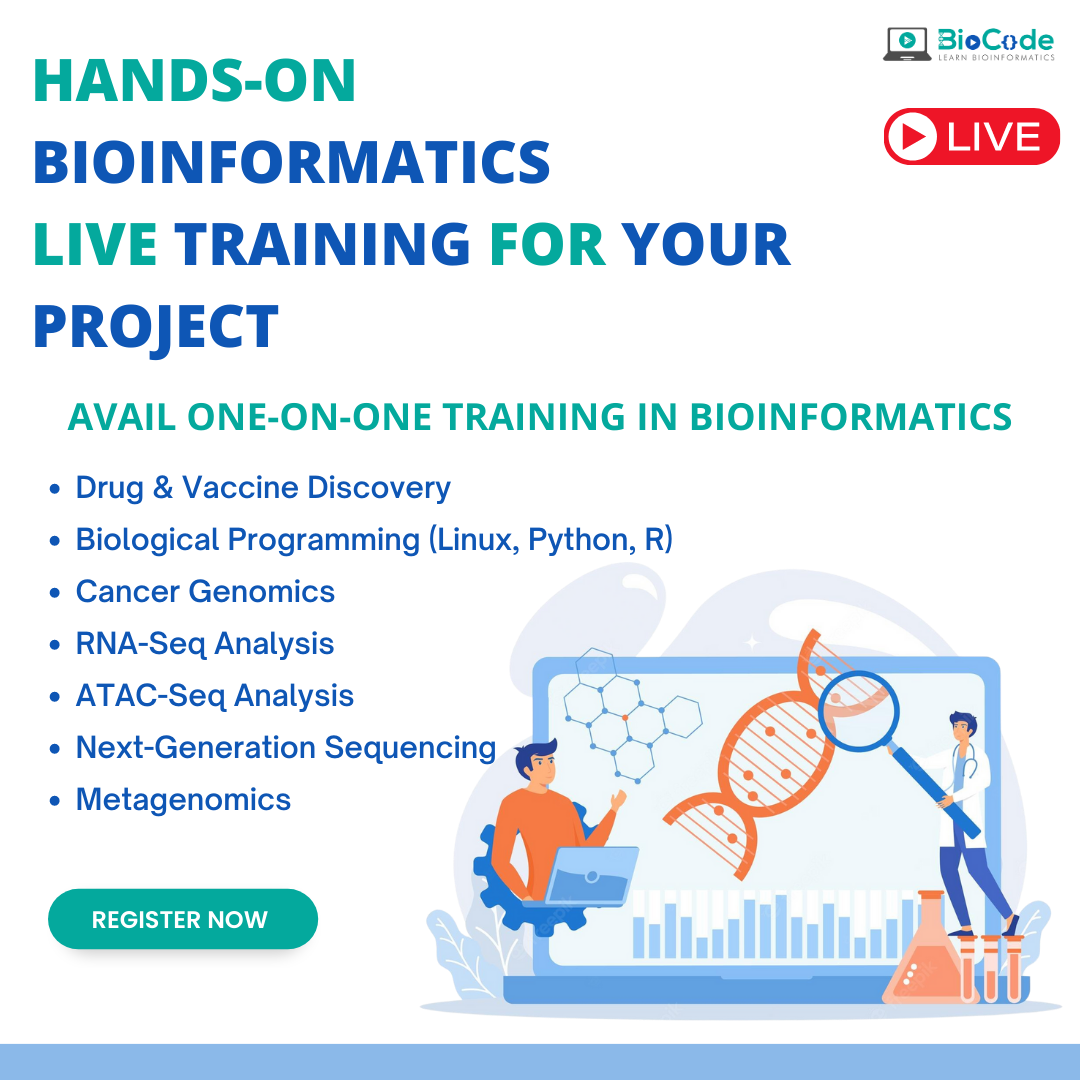Indicators on Bioinformatics Tutor You Should Know
Indicators on Bioinformatics Tutor You Should Know
Blog Article
Bioinformatics Tutor Fundamentals Explained
Table of ContentsWhat Does Bioinformatics Tutor Mean?The Of Bioinformatics TutorAn Unbiased View of Bioinformatics TutorIndicators on Bioinformatics Tutor You Need To KnowNot known Factual Statements About Bioinformatics Tutor
Of the total amount individuals associated with the training, 80% were pupils from public college institutions, while the staying 20% came from exclusive establishments. To get approved for a certification of involvement, pupils were needed to participate in a minimum of 90% of the total training hours. As an outcome of this need, a remarkable 95% of the individuals successfully gotten their certificates, having not just met the minimum participation standards however likewise finished all designated tasks throughout the training.
Throughout the elevation of the COVID-19 pandemic, especially in between June and August 2020, the job team was entrusted with organizing specialized training in bioinformatics. This training was specifically targeted at trainees from the study group Nucleus for Research study in Applied Computer at the Federal University of Pará (UFRA) The adaptation to remote discovering platforms because of the pandemic produced a chance to explore new mentor techniques and electronic tools that improved both reach and performance.
This course was made to supply an accessible yet comprehensive introduction of Artificial Knowledge techniques, particularly as used in bioinformatics (Bioinformatics Tutor). This digital style allowed participation from pupils throughout Brazil, several of whom could not have had the opportunity to participate in in-person sessions.
Everything about Bioinformatics Tutor
A remarkable function of this program was its emphasis on hands-on understanding. About 50% of the complete training hours were devoted to practical activities where trainees developed intelligent designs and applications in a variety of clinical domains, including genes, molecular biology, and ecological data analysis. Widely utilized frameworks and devices such as Spyder, Google Colab, Jupyter Notebooks, and Orange were incorporated into the coursework. These platforms allowed pupils to participate in real-time information adjustment, design training, and formula trial and error.
The program brought in 80 participants in total. Sixty of them were associated with numerous college establishments in the state of Pará, while the continuing to be twenty came from organizations located in five other Brazilian states. This broad geographical depiction highlighted the nationwide interest in bioinformatics and the growing demand for specialized skills in this field. By introducing Artificial Knowledge in a useful and pertinent context, the initiative offered to link the gap between concept and real-world application, offering students with a solid structure for future study or employment in the field.
The training campaign formed component of a more comprehensive academic outreach effort understood as the Bioinformatics when traveling task. This project has, for many years, presented loads of students to the globe of bioinformatics and computational biology. The events held under this umbrella initiative have actually happened across multiple regions and years, as summed up in Table 1 (Checklist of occasions, places, years, and total varieties of trainees and trainers)
Several of these teams, at first brought together by their engagement in training occasions, have given that gone on to create independent scientific study in partnership with local scholastic institutions. The training not only fostered scientific reasoning within the context of bioinformatics however likewise triggered joint connections that prolonged beyond the training setting.
Bioinformatics Tutor for Dummies
The project itself was conceived and arranged by megabytes and RR, that oversaw the preparation and implementation of each step. Lectures were provided by a multidisciplinary team containing MB, FA, EF, KP, JS, DM, SN, LP, LG, AIR CONDITIONING, rr, and ih. The exact same group, omitting IH and RR, likewise acted as tutors for the functional training components. Financing for the job was supplied through the give 88887.200562/ 2018-00 from CAPES. The writers prolong their thankfulness to everyone who added to the awareness of this job, whether straight or indirectly, given that its creation.
The Federal University of Pará's Office of Research (PROPESP/UFPA) additionally supplied financial backing, specifically for the manufacturing of the last manuscript. The authors state no monetary or industrial problems of interest that could have influenced the study. In addition, all point of views and interpretations expressed in this write-up are only those of the authors and do not necessarily mirror those of their corresponding establishments, the author, editors, or customers included in the magazine procedure.

Things about Bioinformatics Tutor
From an instructional point of view, the training strategy made use of in the training was intentionally interactive. Courses were conducted in a fashion that encouraged trainee participation and discussion, going past rote memorization to discover just how ideas are established, applied in day-to-day live, and tested in scholastic settings. The educational philosophy focused on nurturing both solid and having a hard time students, giving customized assistance, and building self-confidence through continual mentorship and patience.

Each team, containing about 36 individuals, was supported by 3 mentors-- many of whom were postdoctoral scientists with specific competence. These coaches not only helped create the group projects but also promoted their execution, making certain that each study question was both suitably difficult and relevant. The goal was to provide a biologically reasonable context that participants can explore with flexible goals and access to curated datasets.
For added insights into the method and outcomes of this project-based understanding approach, visitors are directed to S1 Text, which includes in-depth summaries of the instructional framework, analysis techniques, and project motifs utilized in the training sessions.
The Single Strategy To Use For Bioinformatics Tutor
Of the total amount participants involved in the training, 80% were pupils from public higher education institutions, while the continuing to be 20% came from exclusive institutions. To qualify for a certification of engagement, trainees were needed to participate in at the very least 90% of the complete training hours. Significantly, beyond the students that signed up in the training sessions, 7 knowledgeable trainers got this post involved in providing the courses, while three committed study teachers coordinated the overall training procedure. Roughly 50% of the complete training hours were devoted to practical tasks where students built smart models and applications in an array of scientific domains, consisting investigate this site of genetics, molecular biology, and environmental data evaluation. The training not just fostered clinical thinking within the context of bioinformatics however additionally stimulated collaborative relationships that extended past the training setting.
Report this page